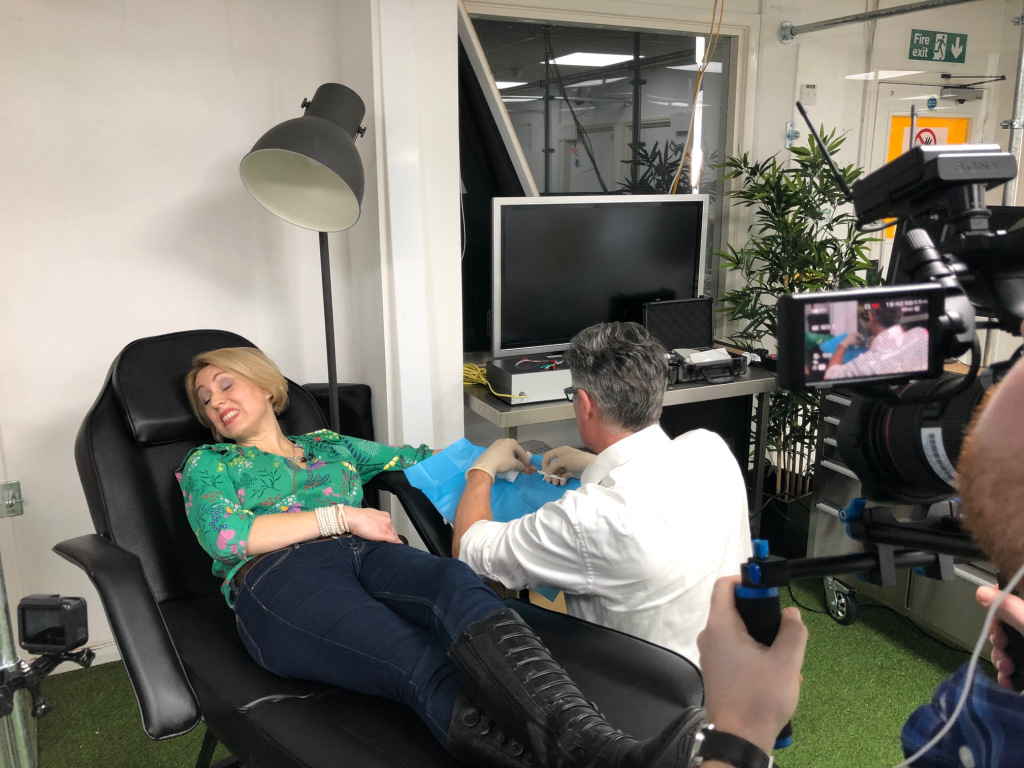When you hear about the recent phenomenon of microchipping humans, you can’t help but give a little shudder as you imagine vivid scenes straight from 1984. It’s completely natural that when hearing about a chip being injected into a human hand we all envisage the mighty eye of Big Brother.
However, while I’m not a convert my investigation into the microchipping trend has swayed my opinion slightly. This probably first began when speaking to Steven Northam, the owner of the human technology implant specialist BioTeq. He shattered my excited expectations of a mad scientist or intense authoritarian figure by being a normal man from Hampshire.
His company, Bioteq, injects humans with chips that store data using a similar technology to contactless card payments. Currently, the implant can be used to open doors, start cars and log on to laptops which have been fitted with the technology.
There are hopes that in the future chips could store bank details and essentially make your body your bank card. Which while certainly harder to loose, is a strange idea and takes some getting used to.
These futuristic concepts are hard to comprehend, which is why I find it interesting that a growing number of people in the UK are opting to have the £250 procedure. Steven explained his experience of this.
He said: “It’s a growing market, the reasons seem to be around the changing attitudes to technology and the convenience factor for certain demographics”.
I’m looking toward the future.
I also spoke to Sasha Twining, who recently had the procedure done. She said:
“I hope to put payment details on it, maybe put a travel card on it. I think the big leap will come when finance companies come on board and you’ll be able to use them to pay for things in the same way we use Apple pay at the moment.”
“It’s far more secure than being stored online”
As well as this, Sasha saw the chip as a way to combat recent data protection issues.
“What I find most interesting is that we, as a society, seem to be very laissez fair with our data and our personal information which isn’t necessarily a good thing and is already coming back to sting us some what with data breaches.”
Steven also discussed this. He said: “It’s far more secure than being stored online. For someone to read the data from the microchip they would have to physically read the chip by holding a reader over the implant. The data is also encrypted.”
This is an interesting angle that I hadn’t considered. What if in a society where personal data is everything and has even become a means of currency, this is a way of regaining control? What if instead of enforcing this Orwellian nightmare, it counters the control of others over us?
This is certainly something to considered and I’d be open to this idea. I also understand that this chip is the type of contraption that may emerge in future society.
However, these promises seem a long way off and there is still something inherently eerie about the practise of microchipping. Which means while I respect those charging into the future, swinging their microchip scanners like futuristic swords, I won’t be signing up for my bionic make over any time soon.






